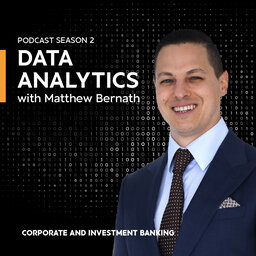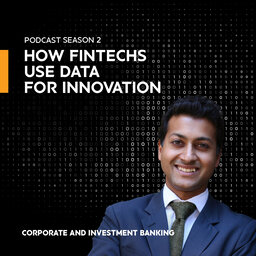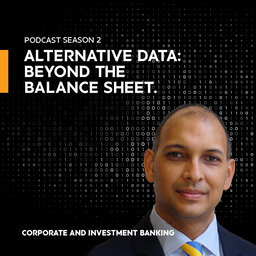S1 / E12 - Risk Analytics in Data - Lytania Johnson, Chief Risk Officer at FNB
In today’s episode of the podcast series, we are joined by FNB’s Chief Risk Officer, Lytania Johnson. Data is a key component in the risk landscape, from basic risk assessment to new technologies such as AI and machine learning.
Risk is considered from two angles – how to use data and analytics to inform better risk management, and the business of risk – making sure that the risk function itself becomes future-enabled to achieve efficiency.
In a retail and commercial bank such as FNB, credit risk is of utmost importance. Data is well entrenched in the retail business where it is used to build appropriate scorecards to identify the right customers at the right affordability level.
In the lower end of the commercial segment, data is used to drive scorecard development for customers, and in an environment with turnovers of up to R60 million, is key to decision making.
Covid-19 highlighted the importance of using broader data points to understand the risk of your customers. The various levels of lockdown identified a key data point that is often underestimated – industry risk.
In the FNB environment, you can link a retail customer to an entity that they operate in, bringing together the commercial data and retail credit data to understand income risk volatility. An opportunity has also been identified where data and analytics can be used to make risk processes more efficient, and secondly, if AI and machine learning can be used to connect the data insights and develop client desirability synopsis forms, this frees up your risk professionals to do the judgmental work and assess the outcome.
What about global trends such as ESG and financial crime? Data and analytics can definitely play a part in informing financial crime in the broader sense. This is not just about anti-money laundering, it’s about truly understanding a client and their financial activity within the bank.
Data can also be used to see where there are opportunities to support customers who wish to transition into climate-friendly industries and to provide products and solutions that align with what you want to achieve in terms of climate risk management.
Looking ahead, Lytania believes that the nature of a risk professional is going to change and will require a better overall understanding of data literacy. She also feels it is important to realise that the risk profile is going to evolve, and the risk function itself will call for a lot more platform-based risk management thinking, with data analytics at the very core of it.
 Data Analytics with Matthew Bernath
Data Analytics with Matthew Bernath


